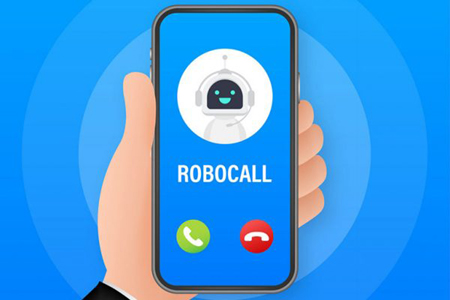
WASHINGTON, D.C. (TIP): Anyone with a mobile phone knows the unpleasant sensation of answering a call from an unfamiliar number only to hear a pre-recorded marketing or scam pitch from a company you have no interest in patronizing. Around 33 million robocalls are made each day to Americans, according to the National Consumer Law Center (NCLC)—more than 50 billion a year, says a Times report.
This is more than just an annoyance; in 2022, around 68 million Americans lost over $29 billion to scam callers, according to NCLC. These calls also make people less likely to answer their phone or trust valid phone calls they do receive, making the nation’s significant telecommunications infrastructure less valuable.
One of the most frustrating things about these calls, says Margot Saunders, senior counsel at NCLC, is that they are largely illegal. Government regulations say that a telemarketing call is only legal to a cell phone or residential line if the recipient of the call has provided “prior express written consent” to that call. (This is similar to rules of the National Do Not Call Registry, though consumers must opt in to that registry through the website of the Federal Trade Commission.) But often, the sellers and the telemarketers calling for them don’t have this consent.
The reason they’re getting away with continuing to make these calls is that the sellers, often big well-known companies, hire telemarketing firms to make the calls on their behalf. Often, these telemarketing firms buy consumer information—and, they argue, consent—from other companies, in a billion-dollar business called lead generation. Lead generators typically take one agreement from a consumer providing consent and sell that agreement to many different callers and sellers, who themselves resell it to many others. A consumer might have signed up to receive a call from one seller—say a car insurance quote—and then unwittingly clicked a box agreeing to be contacted by hundreds or thousands of companies loosely affiliated with the car insurance company.
On Wednesday, Dec. 13, the government made it much harder for sellers to make calls to numbers obtained from the lead generation industry. In a 4-to-1 vote, the Federal Communications Commission approved regulations that explicitly say that telemarketing robocalls are allowed only if the actual seller, not just the telemarketing company, has gotten written consent from the specific consumer.
“Today we put an end to this loophole,” FCC Chairwoman Jessica Rosenworcel said, at the FCC meeting. “That means consumers get back the power to pick who they want to communicate with and when.”
The vote should help cut down on the number of robocalls made. Each illegal call, according to Congress, can lead to $500 in damages. “It will be much more difficult for sellers to try and escape responsibility,” Saunders says. The Electronic Privacy Information Center projected that the vote would eliminate the “great majority” of unwanted telemarketing calls and texts.
Of course, it could be a little while before anything changes. If companies continue to flaunt the rules, regulators may need consumers to turn them in and file lawsuits to hold those companies accountable. That’s not easy to do, says Saunders—you’d have to answer a robocall, find out who the seller is, and then file a lawsuit under the Telephone Consumer Protection Act. Many consumers may not have the time or the patience for that.
Still, the industry is preparing for a wave of new lawsuits under the Act. A defense attorney told Reuters that he expected to see lawsuit filings double or even triple going forward.
(Source: Time)





Be the first to comment